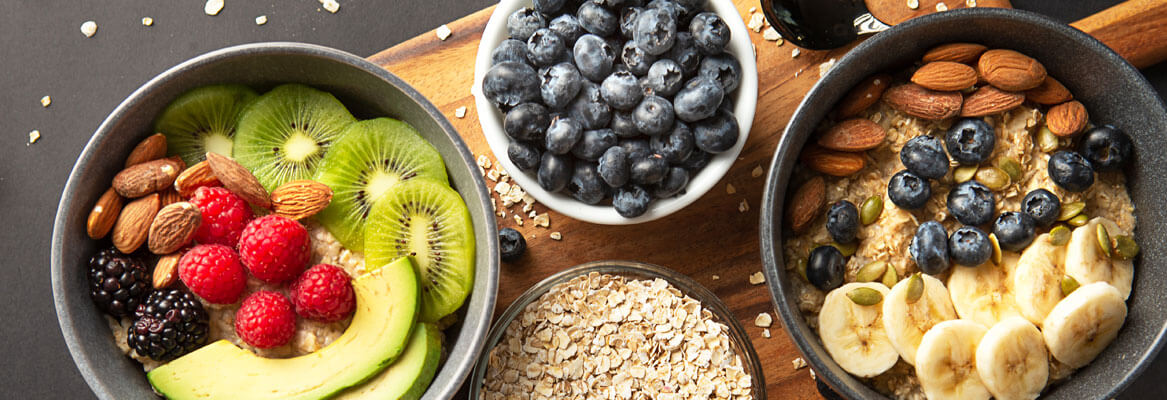
Heart Healthy Eating
It is always a great time to show our hearts some love and explore some of the ways we can eat to keep it healthy. Following the guidelines below can help reduce the risk of high cholesterol, high blood pressure, heart disease and stroke.
1. Eat less saturated fats and stay away from trans fats
- Swap out saturated fats like butter, cheese, and red meat and replace with unsaturated fats like olive, peanut or canola oil, nuts, seeds, and fish.
- Choose lean cuts of meat and remove any white fat or skin on store-bought meat before cooking.
- Stick to a portion of meat that is about the size of the palm of your hand.
- The Mediterranean diet, which has been shown to keep our heart healthy, recommends limiting red meat to 1-2 servings per month.
2. Eat more fibre and choose sweet foods less often
- Eat more fibre by having a serving of fruits or vegetables at lunch and dinner.
- While all types of fibre are good for health, viscous (sticky) soluble fibre is extra important for our heart – oats, barley and pectin containing foods like apples, pears, peaches, oranges, grapefruits, and eggplant are great sources!
- Supplements like Metamucil contain psyllium which is another heart healthy soluble fibre that has been shown to lower cholesterol.
- Add less sugar to coffee and tea and try to pick fruit instead of cakes or cookies. Choose water more often and swap sweetened beverages like pop with diet pop.
3. Choose plant-based proteins more often
- Plant based proteins include legumes (beans, peas and lentils), nuts and seeds and soy products like soy milk, tofu and tempeh.
- Nuts, seeds, beans and legumes are also great sources of fibre.
- Try to have a handful (45g) of nuts daily this can include almonds, walnuts, peanuts, mixed nuts, or nut butters.
- Swap out cow’s milk for soy milk or replace the meat in some meals with tofu, beans, lentils or chickpeas.
- Another great way to snack on soy is to try steamed edamame beans or crunchy soy nuts!
4. Get enough Omega 3 fatty acids
- Eat fatty fish like char, salmon, trout, or sardines 2 or more times per week.
- 2-5 tablespoons per day of ground flaxseed, another source of Omega 3 fatty acids has been shown to lower LDL cholesterol and blood pressure.
- Omega 3 supplements are not recommended for the prevention of heart disease, it is best to get these through foods!
- Other sources of omega 3s include chia seeds, walnuts, canola oil and omega 3 fortified eggs.
5. Limit Salt
- Uses spices instead of a salt when cooking or baking then use just a little dash of salt at table after tasting it. Most times foods have enough flavour without added salt.
- Look for foods that say low sodium, sodium reduced or no salt added.
- When choosing packaged foods look for foods with less than 15% daily value of sodium per serving.
- Foods that are high in salt are ketchup and pickles, packaged sauces and dressings, canned soups and processed meats like hot dogs and lunch meat.
- Fast food and restaurant food is often very high in sodium, try to eat this once a week or less.
BONUS: Chocolate for heart health?!
- It’s true! New research suggests that antioxidants called flavonoids may help prevent blood clots and lower blood pressure.
- Flavonoids can be found in dark chocolate and pure cocoa as well as fruits like berries, cherries and grapes, vegetables like leafy greens, garlic and onions, and in beverages like black or green tea and small portions of red wine.
Resources:
Portfolio Diet
Healthy-living / Healthy-eating / Reduce-salt
Mediterranean Diet
Flavonoids are a flavorful way to boost heart and brain health
*The above links are to external websites.
